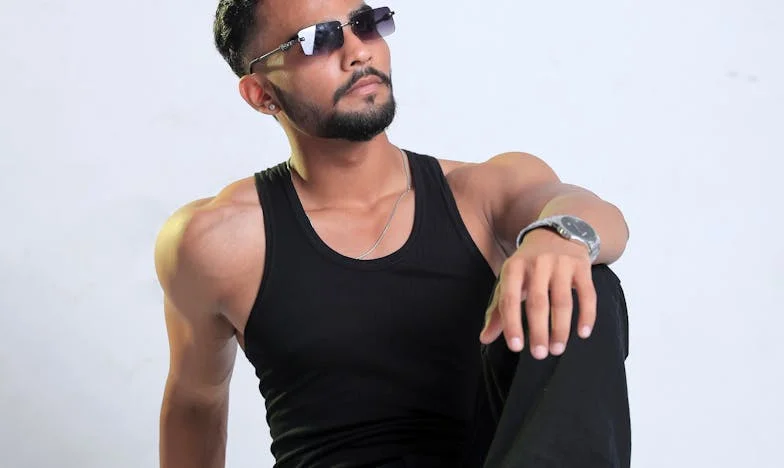First to Find, Last to Let Go
“You found her first, so go with her,” I whispered, my voice barely audible over the metallic screech of the train as it slowed. Bailey, my old golden retriever, looked up at me, brown eyes reflecting the fluorescent lights and the confusion in my own heart. I knelt down, feeling the hard chill of the platform seeping through my jeans, and stroked Bailey’s head one last time. “I’ll miss you, buddy.”
The doors hissed open. People surged past, dragging their bags, their lives, their stories. I watched my daughter, Emily, standing a few yards away, phone pressed to her ear, eyes darting back and forth. She looked so much older than her sixteen years in the harsh station light; she looked nothing like the little girl who once begged for a puppy on her seventh birthday.
I could hear her voice, sharp and panicked. “I don’t know, Mom. He’s just standing there—yeah, with the dog. No, I’m fine. I just—can you come get me?”
I swallowed hard. This wasn’t how it was supposed to go. This wasn’t how family was supposed to break.
The day had started like any other, cold coffee and the sound of the neighbor’s lawnmower through the kitchen window. Emily had been silent at breakfast, scrolling on her phone, ignoring my attempts at conversation. The divorce had left us both raw, but I had hoped that weekends together would help heal some of those wounds. Bailey had sensed the tension, circling under the table, tail thumping hopefully against our legs.
“Dad, can we go out today?” Emily asked suddenly, not looking up.
“Sure, Em. Where do you want to go?” I tried to sound cheerful, grateful for any sign that she wanted to reconnect.
She shrugged. “I don’t care. Just not here.”
We ended up at the dog park, Bailey’s favorite place. For a moment, watching him bound through the grass, tongue lolling, Emily even managed a smile. But when her phone buzzed, the smile faded. I caught a glimpse of the screen—her mom’s name, glowing bright.
“Everything okay?” I asked, forcing myself to sound casual.
She turned away. “Fine. Can we go?”
Back at the train station, the tension between us snapped. Emily wanted to go back to her mom’s early. I wanted her to stay. Bailey, caught in the middle, just wanted us both together. When the train arrived, it felt like the end of something I’d been too afraid to name.
As I stood on the platform, the cold cutting through my jacket, I realized I was about to lose them both. Emily, walking away with her mother’s arms open wide at the end of the platform. Bailey, looking back at me, waiting for a command.
“Go with her,” I said again, tears stinging my eyes. “She needs you more.”
Bailey hesitated, then trotted after Emily, who dropped to her knees and buried her face in his fur. I watched them, my heart breaking, as a family I barely recognized disappeared into the crowd.
The ride home was silent. The house, emptier than ever. I sat on the edge of the bed, staring at Bailey’s abandoned leash, the one Emily decorated with stickers years ago. I thought about all the choices I’d made—staying late at work, missing school plays, letting anger simmer instead of reaching for forgiveness.
Days passed. Emily didn’t text. Bailey’s food bowl sat untouched. I tried to fill the silence with music, with TV, but nothing worked. The loneliness pressed in around me, heavy and endless.
One evening, my ex-wife called. “She misses you,” she said, her voice softer than I remembered. “But she’s angry. Give her time.”
“I don’t know how to fix this,” I admitted.
“Start by forgiving yourself,” she said. “She’ll come around.”
Weeks slipped by. I saw Emily in passing, at school events or through the car window as she left for her mom’s. Bailey always looked for me, tail wagging, tongue out, but Emily kept her distance.
One Saturday, I got a text: “Can we talk?”
Emily sat on the porch steps, Bailey’s head in her lap. “Dad,” she said, not meeting my eyes. “I hated you for making me choose. I hated that you let me take Bailey. But I think I get it now.”
I swallowed, afraid to move. “I just wanted you to be okay.”
She nodded. “I know. I’m still mad. But I love you.”
Bailey nudged my hand, whining softly. I scratched his ears, tears burning my eyes.
We sat there, the three of us, as the sun set. There were no easy answers, but maybe there didn’t have to be. Maybe love was messy and complicated and sometimes meant letting go.
Even now, I wonder if I did the right thing. When is it right to let go, and when is it worth fighting for what you love? Maybe you have an answer. Or maybe, like me, you’re still searching for one.
